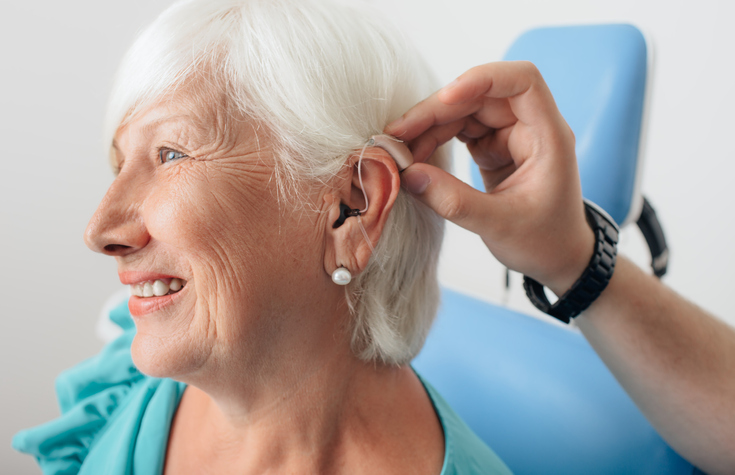
According to research, hearing loss can lead to dementia in certain cases.
When checking in on Mom, you notice the TV is blaring, and she is asking you to repeat what you’ve just said, or even to speak up because she thinks you are mumbling. Some degree of hearing loss is quite typical in seniors, and definitely requires staying on top of through regular hearing examinations. But there’s another reason to pay close attention to any hearing deficiencies in older adults: the link between dementia and hearing loss, which suggests that hearing loss can lead to dementia.
What’s the Connection Between Dementia and Hearing Loss?
Wondering if hearing loss can lead to dementia? Researchers believe there are several factors that go hand in hand with a senior’s hearing loss and their increased risk for dementia.
- When a loved one experiences hearing loss later in life, the brain starts to shrink more quickly
- Loss of hearing may cause seniors to limit their social time with others, causing a reduction in brain activity and engagement in addition to intellectual stimulation
- The brain needs to work harder to comprehend audible input, affecting memory and thinking as it strains to fill in the holes of missed conversation
Studies have already disclosed that seniors dealing with a decline in hearing also encounter a decline in cognitive functioning as much as 30 – 40% faster than individuals without hearing loss. Furthermore, hearing loss leads to a higher risk for depression, falls, and other serious health conditions.
The next step is further examining the prospective link between dementia and hearing loss and to assess if seniors who receive treatment for their hearing loss can avoid developing dementia. With 48 million people in the U.S. alone struggling with some sort of hearing loss, the potential effect of better understanding this connection is immense.
How Can You Help Someone You Love With Hearing Loss?
If hearing aids are suggested by a physician, encourage a loved one to wear them and to follow through with the doctor’s prescribed regimen of regular checkups and adjustments.
Also, encourage your family member to stay socially active in spite of hearing loss. Having a companion accompany the person on visits with friends and family or on outings is an excellent way to help them feel more comfortable and secure. The companion can serve as a liaison when needed to help the person take part in conversations and not feel left out.
At Morning Glory Home Care, our care providers make great companions for people with hearing loss or other health issues. We can provide transportation and accompaniment to medical appointments as well as fun outings, along with a full variety of personalized support services in the home or on the go.
We also provide specialized care services for people with dementia. Our fully trained and experienced experts understand the distinct challenges associated with the disease and provide creative, compassionate solutions.
Contact us at 618-667-8400 for more information on how we can help someone you love enjoy life to the fullest!
